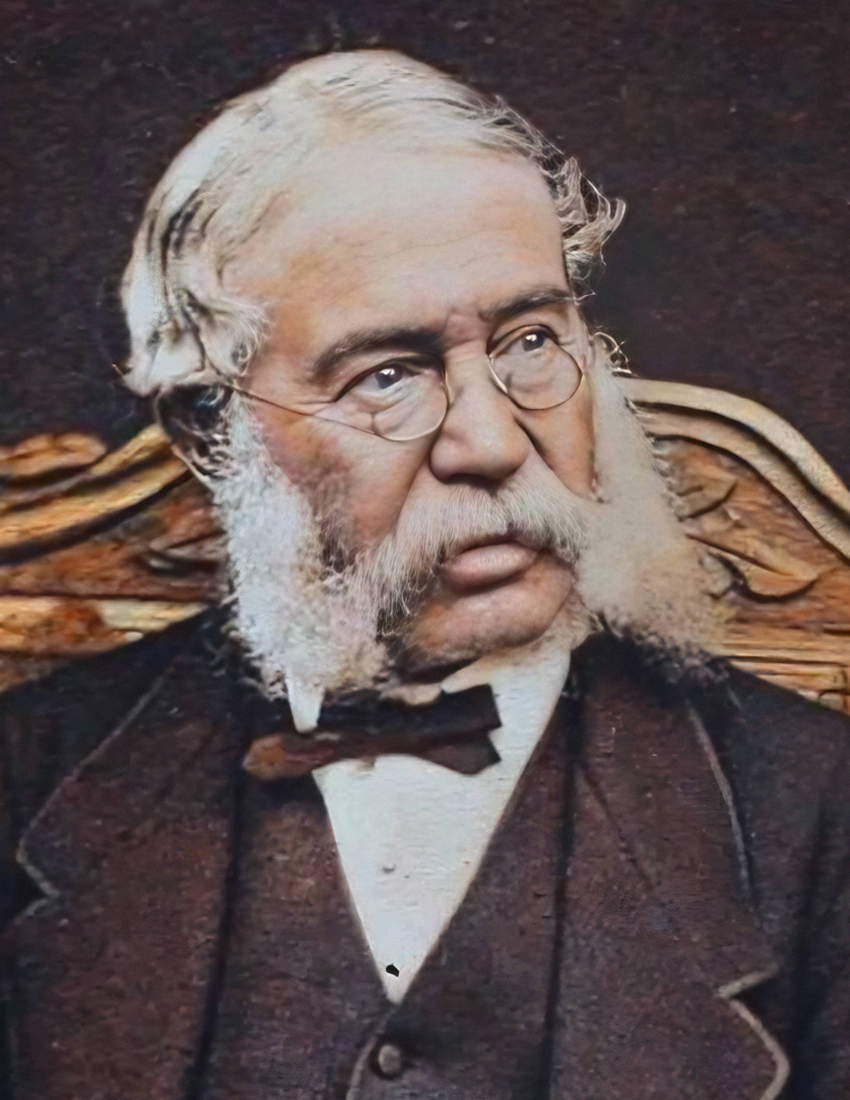Born: October 26, 1813, London, England.
Died: July 6, 1879, London, England.
Buried: Hampstead Cemetery, London.
Henry Thomas Smart

Hymns by Henry Smart
A Prodigy’s Unconventional Path
In the bustling streets of early 19th-century London, a young Henry Thomas Smart could often be found in an unusual haunt for a child his age. While other lads played with toys or chased each other through alleyways, Henry spent his free time at the Robson organ factory, marveling at the intricate machinery that produced such magnificent music. When he wasn’t at the factory, the boy could be found at the Royal Institution, soaking in scientific lectures with rapt attention. Little did anyone know that this scientifically inclined child would one day become one of England’s most renowned organists and hymn composers.
From Law to Music: A Divine Redirection
Henry Thomas Smart entered the world on October 26, 1813, born into a family steeped in musical tradition. His father was a music publisher and accomplished violinist, while his uncle, Sir George Smart, was a celebrated conductor. Despite this rich musical heritage, Henry’s path to becoming a musical luminary was far from straightforward.
In his youth, Smart briefly considered an Indian Army commission before dutifully embarking on a legal career. But God had other plans for this talented young man. After four years of poring over dusty law tomes, Henry made the bold decision to devote himself entirely to his true passion: music.
A Rising Star in Sacred Music
What followed was a meteoric rise in the world of English sacred music. Smart’s nimble fingers danced across organ keys in a succession of prestigious churches: from Blackburn’s Parish Church to the hallowed halls of St. Pancras in London. His reputation as an organist of unparalleled skill grew, with his improvisations leaving congregations in awe.
But Smart’s talents extended far beyond performance. His childhood fascination with mechanics blossomed into a valuable skill, allowing him to design several organs throughout his career. This unique combination of musical and mechanical prowess set him apart in the world of sacred music.
Smart’s expertise and reputation led to an invitation from William Sterndale Bennett to join the Committee of his Bach Society. This distinguished group was instrumental in bringing about the first English performance of Bach’s St Matthew Passion in 1854, a landmark event in England’s musical history.
While Smart’s compositions, particularly his hymn tunes, would cement his place in musical history, it was this blend of performance, composition, mechanical skill, and scholarly involvement that truly defined his multifaceted career.
Triumph Over Darkness
The Lord works in mysterious ways, and for Henry Smart, this came in the form of a profound challenge. From the age of eighteen, Henry’s eyesight began to dim. By his early fifties, the world had faded to darkness. Yet, Smart’s inner light of creativity and devotion burned brighter than ever. With the aid of his devoted daughter, who became his scribe, and drawing upon his remarkable gift for extemporization, Smart continued to compose, perform, and even design organs.
A Lasting Legacy
While Smart’s contemporaries held him in high regard for his diverse musical talents, the passage of time has dimmed much of his legacy. Yet, one shining beacon remains: his hymn tune “Regent Square.” Composed for “Psalms and Hymns for Divine Worship” in 1867, this melody continues to ring out in churches across the globe, often paired with the beloved words “Angels from the Realms of Glory.” It stands as a testament to Smart’s ability to craft melodies that speak to the soul, transcending time and place.
Henry Thomas Smart’s life was a symphony of triumph over adversity. From a child tinkering in organ factories to a blind master composer, his journey reminds us of the indomitable nature of the human spirit when guided by divine purpose. As we sing his hymns today, we not only hear beautiful melodies but also the echoes of a remarkable life – one that proved that true vision comes not from the eyes, but from the heart and soul.

